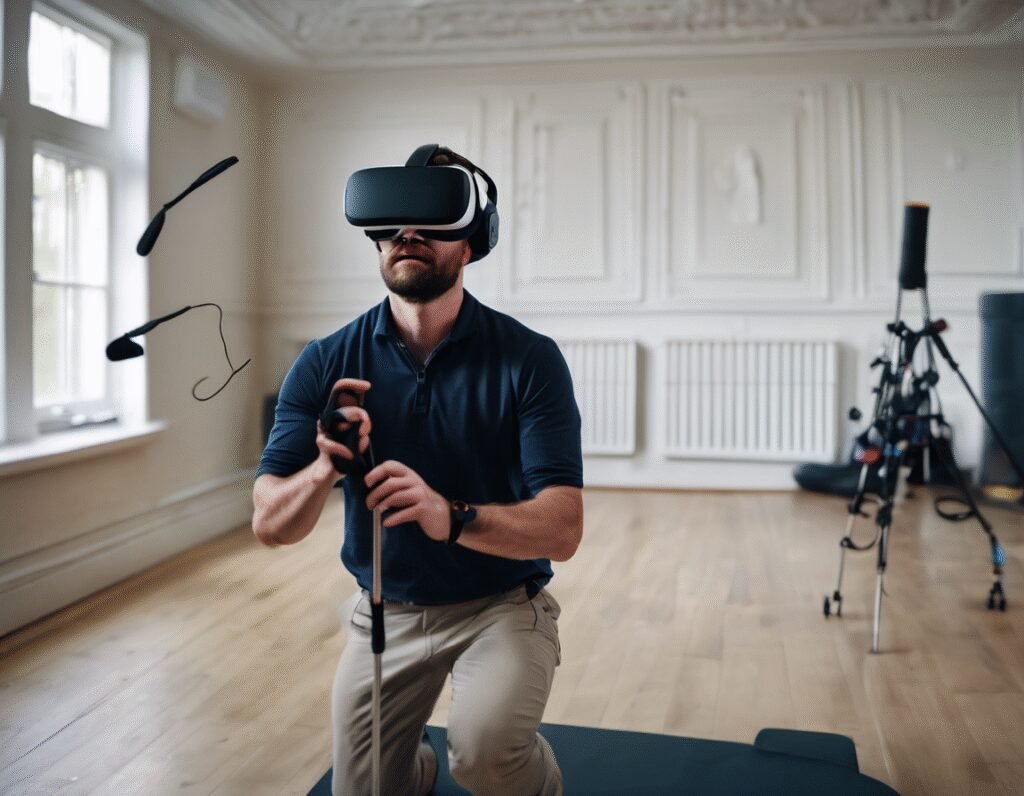Essential VR Accessories to Enhance Your Virtual Reality Experience
Virtual reality headsets offer incredible experiences right out of the box, but the right accessories can significantly elevate comfort, practicality, and immersion. From softer facial interfaces to silicone covers that maintain hygiene during long sessions, small upgrades can make a big difference. A battery strap extends playtime, while a quality USB-C cable ensures faster charging and data transfer. For those seeking a deeper sense of presence, haptic accessories provide physical feedback, making virtual interactions feel more realistic. Whether you are gaming, watching videos, or working in a virtual space, these additions can transform how your setup feels and performs.
Table of contents
Best VR accessories: Controllers
Best VR accessories: Headsets
Best VR accessories: Fitness
Best VR accessories: Cables, chargers and batteries
VR accessories FAQs
Best VR accessories: Controllers
Controller accessories can dramatically improve your interaction within virtual worlds. Specialized attachments can transform standard motion controllers into more familiar objects, like a golf club handle for sports simulations or a bow attachment for archery games. These additions provide a more natural grip and can enhance precision, making gameplay more intuitive and enjoyable. Grip covers are also popular for improving comfort and preventing slippage during intense sessions.
Best VR accessories: Headsets
Comfort is king with VR, and headset accessories are designed to deliver just that. Aftermarket head straps, often featuring improved padding and better weight distribution, can reduce pressure on your face and make extended wear much more pleasant. A good quality standalone headset is a great starting point, but adding a dedicated audio solution, like a pair of wireless gaming headphones, can significantly boost audio immersion over built-in speakers. For organization and protection, a sturdy stand keeps your headset and controllers safe and charged when not in use.
Best VR accessories: Fitness
The VR fitness scene is booming, and the right gear can enhance your workout. Weighted gloves add light resistance to your movements, increasing the intensity of rhythm games and boxing simulations. A quality exercise mat not only defines your play space but also provides comfort during floor exercises and helps reduce fatigue during longer, active sessions. For hygiene, consider moisture-wicking facial interface covers that are easy to clean after a sweaty workout.
Best VR accessories: Cables, chargers and batteries
Power management is crucial for uninterrupted VR fun. A hard-shell carrying case is essential for protecting your headset and accessories during transport, especially if you travel. For PC VR users, a high-speed fiber optic link cable ensures a stable, high-bandwidth connection for the best visual fidelity. To combat cable clutter and tripping hazards, a ceiling pulley system manages the cord overhead, allowing for greater freedom of movement. External battery packs are a must-have for standalone headsets, often doubling or even tripling your available playtime.
VR accessories FAQs
What equipment do you need for VR?
The required equipment depends entirely on the VR headset you choose. Standalone devices, like the Meta Quest 3, are all-in-one systems that need nothing but the headset itself to function. Other headsets are designed to be powered by an external system. PC VR headsets, such as the HP Reverb G2, must be connected to a capable computer, while console-based systems like the PS VR2 are designed to work with a specific gaming console like the PS5. Most headsets include the basic controllers needed for navigation and interaction.
What is the difference between PC VR, Smartphone VR, and Gaming Console VR?
The primary difference lies in the processing hardware required to run the experience. PC VR relies on a connected computer to handle the software and graphics. Smartphone VR, which is less common now, uses a headset mount to turn a mobile phone into the display and processor. Gaming console VR is powered by a specific video game console, which runs the VR software.
Do all VR headsets need a phone?
No, the majority of modern VR headsets do not require a phone. Most devices feature their own built-in displays, sensors, and processors, functioning as independent units. The era of smartphone-based VR, where you slid a phone into a headset, has largely been superseded by more advanced standalone and tethered systems.

